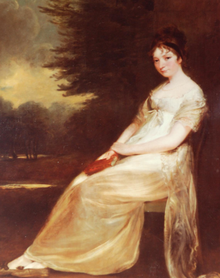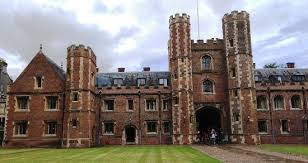In this world, whatever politicians tell us, there’s one thing more important than any other: kindness. We should all strive to be kind to others, and to help others whenever we can. It’s not always easy of course, and I’ve failed in this endeavour as much as the next person, but I’ll keep on trying because, although we may not always see them, an act of kindness done today can bear great results in the future – for proof of that we only have to look at the Brontës.
The Brontës themselves often exhibited kindness, such as the story we saw about Charlotte Brontë providing boots to a shoeless man, or the time that Patrick Brontë had to advise the wife of a fellow clergyman who had ill treated her and her children; many years later the woman, Mrs Collins, returned to Haworth Parsonage to thank him, and Charlotte Brontë reported how much better she looked, and how she’d started her own business and achieved a better life for herself.

Patrick and his family not only gave kindness, they benefited greatly from it. After the death of his wife, Patrick was left with large debts from medical bills, but his friends rallied round and saved him from the threat of bankruptcy – and he was especially thankful to a ‘benevolent woman’ who sent him £50. This woman was the renowned philanthropist Frances Mary Richardson Currer, and Charlotte’s choice of the lady of Eshton Hall’s name as her pen name may have been a tribute to her. Without an earlier act of kindness, there wouldn’t have been any Brontë family at all.
Patrick was a gifted child, but from a poor background, and one with seemingly no future prospects other than helping to run the family farm, subsidising it by working as a weaver. One day, after finishing his weaving tuition, the young boy was sat outside reading aloud from Milton’s ‘Paradise Lost’. It was auspicious timing, for a person passing by was about to change his world, and ours, for ever.
The man was the Reverend Thomas Tighe, parish priest of Drumgooland, and he recognised instantly that here was a young boy of huge promise, and that it would be unfair if a poor background preventing him reaching that potential; luckily for us all, he was in a position to do something about it.

Tighe was from a wealthy family, and was not above acts of philanthropy himself, even though he was very much a Wesleyan and lived a very simple life. Tighe immediately arranged for the young boy to receive schooling alongside his weaving tuition, and so excellent was the young scholar that within a few years he had appointed the now teenage Patrick as a teacher at Drumballyroney School, and even made him a tutor to his own children.
Patrick had now entered a different way of life, but Reverend Tighe was to take this even further by eventually securing Patrick a place at his old Cambridge college, St. John’s, and sponsoring his studies and travel (Patrick was known as a sizar, a student from a poorer background who was given a bursary).

These acts of kindness by Thomas Tighe changed Patrick’s life completely – gone was a future as a subsistence farmer, and in its place came a life of respectability and security as an educated man and a Church of England minister. Tighe was certainly an enlightened minister; in an earlier post in Bath, he had founded a ‘Charitable Institution for the Release or Support of Imprisoned Debtors’.
Incidentally, it may have been the good reverend who was responsible for the name change Patrick took, as well as for the change in the course of life he entered upon. An article in the Morning Post from 23rd October 1877, reports:
“The readers of Mrs. Gaskell’s ‘Life of Charlotte Brontë‘ are aware that her father was the son of a small farmer in the county of Down, but it is not so generally known that his real name was Patrick Prunty, and that when he proceeded to study divinity at Oxford [sic] he exchanged it, at the suggestion of his friend and patron, the Rev. Mr. Tighe, for the name which his daughter subsequently made famous.”
Was, then, Thomas Tighe the real cause of Patrick’s name change, perhaps realising that this too would help his career in the church at a time when anti-Irish sentiment was high? Whether that’s true or not, we can all follow Tighe’s example, and act as disseminators of kindness and catalysts for positive change, even if we do still let out a curse or two when we’re cut up on our morning commute.

Thank you for this….It was a new story for me, and a precious addition to my Bronte scrapbook
Very best wishes
Jenni